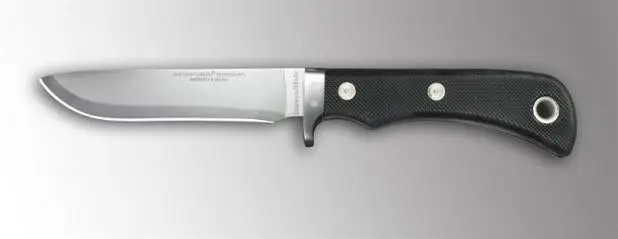_We may earn revenue from the products available on this page and participate in affiliate programs. Learn more ›
_

Those of you who follow my rantings and ravings are aware of my creepy–bordering on unnatural–fondness for Diamond Blade knives
. I think they’re about the best working knives you can buy, both because of their excellent design, and because they will stay sharper longer than anything else that cuts. This is not based on gutting one deer; it’s based on the 100 yards of ½-inch manila rope which I reduced to nothing, half an inch at a time, over the course of several years, slicing away with all sorts of knives to see which kept their bite longest. A number of them did extremely well, but none could match a Diamond Blade.
If you’re new to the name, Diamond Blades are made of D2 steel, which is common in the knife biz, but the edges are subjected to a unique process called Friction Forging, which subjects the metal to great heat and immense pressure. (It’s an adaptation of the technique by which submarine hulls are joined together.) This results in a blade whose edge is so hard that its Rockwell number is off the chart (65 to 68 on the C scale; 62 is regarded as absolute max on conventionally tempered blades) while the spine is Rc 42-45, about as hard as a rifle receiver.
The result is the same as Japanese swordsmiths achieved with katana blades–an extremely sharp, durable edge, and a nearly unbreakable blade. I once watched a Diamond Blade bent double in a vise, then bent straight again, and it didn’t care much if at all.
Now there is a new knife in the line of such transcendent excellence and luminous superiority that my aged, gnarled fingers are scarcely able to type words to describe it. Whatever. It’s called the Meridian, and is a hunting/general purpose knife with a slim, drop-pointed 4 ½-inch blade, a 440C guard, and a nice, long, Suregrip handle, which is the same checkered synthetic used on Knives of Alaska cutlery. At 6 ounces, the Meridian is quite light and comes with an excellent sheath that is fiber-lined to keep the blade from punching through.
As a pure hunter, I would like the Meridian better if it had a slightly shorter, wider blade with a bit more belly. On the other hand, it’s better at a wide range of tasks than a pure hunter, and makes a terrific kitchen knife.
A note of caution: Diamond Blades will rust or pit if they are put away wet, dirty, or bloody. I’ve seen this happen to a number of them, and it’s beyond me why someone would pay this kind of money for a knife and then not give it at least minimum maintenance. But there you are.
At $375, the Meridian is at the low end of the Diamond Blade price range. You may be reluctant to pay that much for a knife where there are so many other good ones available for a lot less money, but I’ve been using them since they came out, and I’m not.


